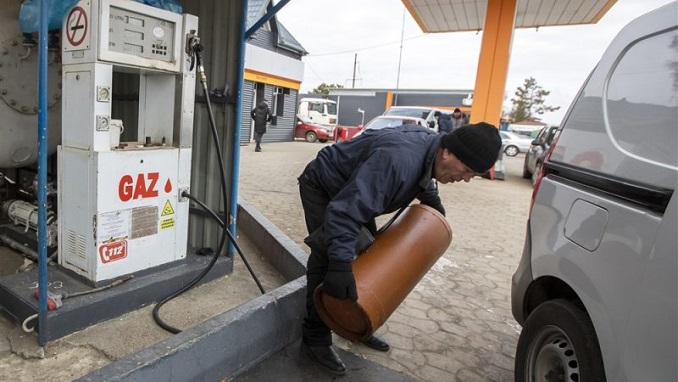Refusing to endure the blackmail imposed by Russian gas giant Gazprom over its difficulties in paying for supplies, the Moldovan energy minister said Thursday that the Ex-Soviet country is no longer receiving Russian gas.
Speaking to TV8 television, Moldovan energy minister Victor Parlicov said that since December, none of the Russian gas is going to central authorities in Chisinau and that Gazprom had been providing supplies only to Moldova’s Russian-backed Transnistria separatist region.
The rest of Moldova also depends on Transnistria to provide most of its electricity at relatively cheap prices from a Gazprom-supplied thermal power station and the Moldovagaz company’s accumulated arrears stand at $709 million, though Chisinau an international audit of the debt last year ordered.
According to Parlicov, thanks to €300 million in credits from the European Bank for Reconstruction and Development (EBRDA) Moldova was able to secure European supplies.
He also underscored the privileged position Transnistria has, noting that Gazprom puts up with debts from the pro-Russian region that, according to him, didn’t pay for gas before and it’s not paying now. Moldovan officials estimate the sum of Transnistria’s unpaid bills for Russian gas at several billion dollars.
The funds from gas bills paid by Transnistrian domestic and industrial users, however, are channeled to a “gas account” used to cover some of the region’s substantial budget deficits.
Moldovan minister points out that the Russian gas giant is well aware it will be practically allowing the region to collapse if not for that ‘deal’.
Parlicov said that Gazprom had allowed this for 30 years to keep Transnistria – which he calls the pro-Russian sliver of land- from collapsing whereas when it comes to supplying gas to the rest of Moldova, the Russian company resorted to blackmail and supply cuts.
Russia’s invasion of Ukraine and the presence of pro-Russian separatists on its doorstep has been buffeting Moldova, one of Europe’s poorest countries wedged between Ukraine and European Union member Romania.
Over 30 years after a brief war pitting Russia against newly independent Moldova, a contingent of 1,500 Russian “peacekeepers” remain in the separatist region.



